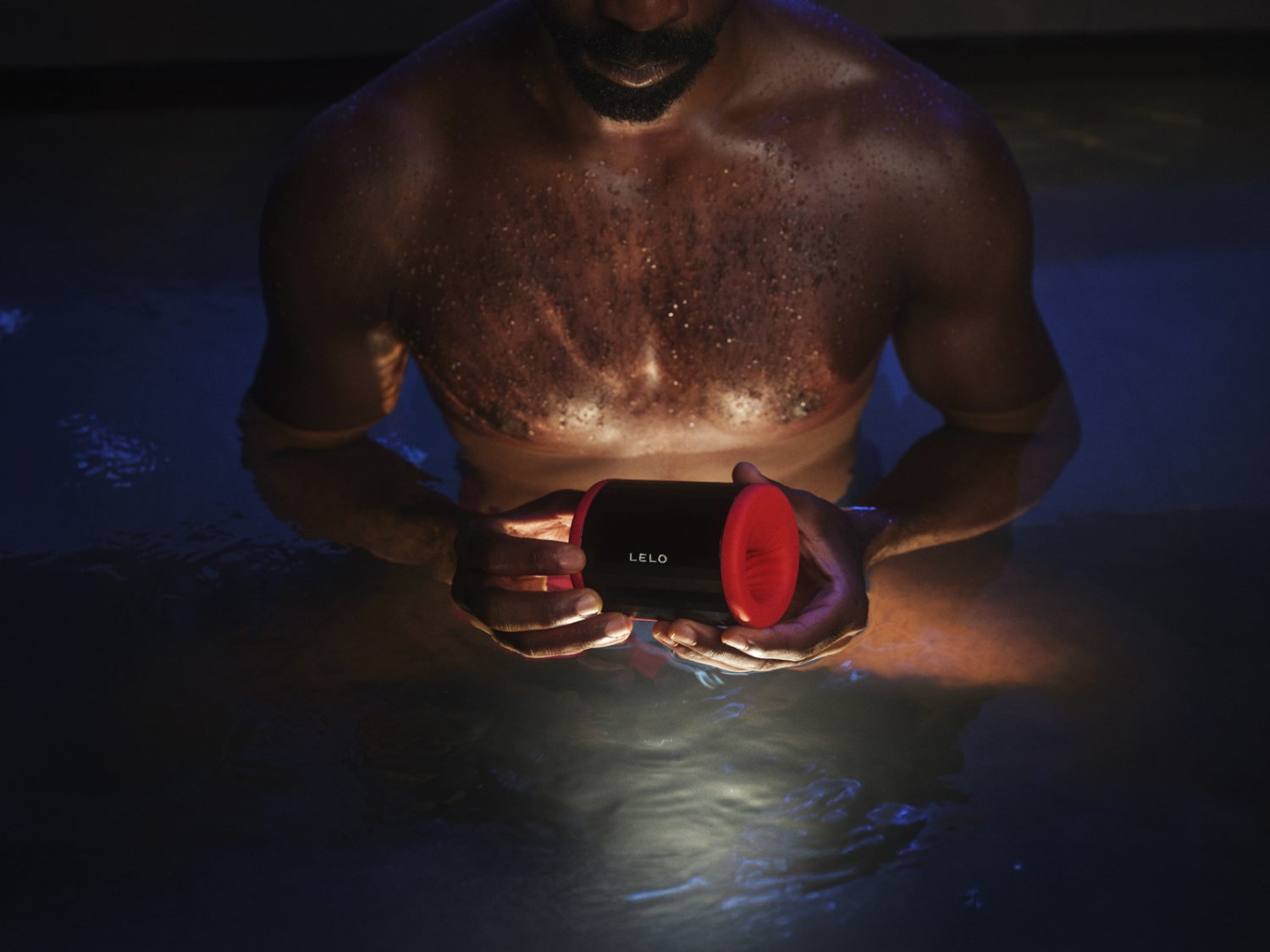We’re back with another round of “embarrassing” sex questions!
Recently, I put out the call for vulva questions that feel too cringe to ask out loud. HERE are your questions.
But before we get into it, I have to say – when it comes to bodies and sex, it’s easy to feel self-conscious about what we don’t know. And yet these questions are so very normal, they’re questions I get all the time! Zero shame in getting the information you need.
Let’s get into it with your vulva q’s…
“How can I navigate pleasure with vulval or vaginal pain? Specifically pain with penetration?”
This is ultra common, especially for folks going through perimenopause and menopause. During this time, estrogen levels dip, causing dryness, burning, itchiness and irritation in the vulvavaginal area. This is a result of your vaginal tissues thinning: the lining of your vagina becomes less stretchy, and you also have reduced vaginal secretions. A recipe for painful sex!
But there are also instances where you’re new to penetrative sex, and things feel a bit painful. Occasional, minor soreness is typically nothing to worry about – your body is simply adjusting. So for this issue OR for perimenopause/menopause pain, I recommend a CBD lubricant for masturbation or sex. CBD provides pain relief as a topical, and – bonus – encourages blood flow for a more intense orgasm.
If perimenopause/menopause is what you’re experiencing, I also recommend a vaginal serum that fortifies your vaginal tissues. V-Health makes a pretty amazing formula with bioengineered human growth factors to regenerate the vaginal mucosa and tissues. It immediately reduces dryness and irritation, but when you put it on nightly before bed, it helps restore vaginal elasticity.
*Get 20% off your order at getvhealth.com with code “EMILY20”
Do certain foods cause a woman to smell down there? Fact or fiction?
Fact. But it’s not as drastic as you may think.
You would have to eat a LOT of certain foods (like onions or garlic) for your genitals to smell like them. The reason is: you have apocrine sweat glands located in your genitals, and they can give off a smell like the food you’ve recently consumed. If, that is…you’ve eaten a ton of it.
Fortunately, this can usually be solved with a shower. And the smell should go away by itself in 24-48 hours max.
But this phenomenon also applies to non-food items, including alcohol and cigarettes. Your apocrine glands can channel those smells too, and if you’re consuming them every day, your genitals might reflect that.
“How do you understand if you’ve orgasmed? Can you see it?”
You’ll know you’ve orgasmed if you can feel rhythmic, involuntary contractions of your pelvic floor muscle.
To locate your pelvic floor muscle, squeeze like you’re stopping the flow of urine. When you orgasm, you’ll feel a similar sensation, but it will feel like a pulse. For those with a vulva, a typical orgasm results in 3-15 pelvic floor contractions.
You might be able to see it happening. Try this: masturbate with a bullet toy. This is a great one for beginners and/or experienced players, because it’s very powerful. If you feel the sensations I described above, look down at your vulva. You may see a subtle pulse, thanks to your pelvic floor contractions. But if you can’t see it, don’t worry. It’s not always visible, and your sensations are the best way to detect orgasm anyway.
“I get vaginal odor after having a lot of sex, it takes a week to get rid of it. Any solutions?”
Here’s the real real on that odor.
Vaginal dryness and friction during intercourse, as well as disrupted vaginal pH from sperm and condoms, are often the culprit of vagina health issues. These include UTIs, yeast infections, and bacterial vaginosis…which is notorious for causing an odor.
But there is a solution! You can use a lubricant designed to prevent all that.
One of my fave lube brands, Playground, just launched Naked Love*. It’s a lubricant formulated for folks prone to UTI’s and bacterial vaginosis, which sounds like what you might be dealing with. It’s got hyaluronic acid, Vitamin E, and antimicrobial citric acid to soothe and nourish the vulva during and after sex. Put it on, have sex and play in peace!
*Get Naked Love for 15% off on helloplayground.com when you use my code, SEXWITHEMILY
“What to do when it’s hard to climax as a female, especially if you can’t orgasm from sex alone?”
First: you are so not alone! Most females do not orgasm from sex alone. You’re not unusual. Porn or other sexy media might have us believe that once we get penetrated, we orgasm in 30 seconds flat. This is false.
Second, there are so many things you can do to train your orgasm. My top recommendation is simply masturbation, and you can do it with a vibrator or a suction toy. A vibrator with deep rumbles like the Je Joue Mimi will reach more of the sexual nerve endings in your clitoris, making orgasm a little easier to achieve. But vibration doesn’t do it for everyone, and lots of people have unlocked more regular orgasms with a suction toy like the Womanizer Starlet 3. Either way: regular masturbation is your best training method to teach your body to orgasm.
And if you’re not already using toys during sex, go for it! The truth is, many women and people with vulvas need toys to orgasm during sex and that is 100% great. Our sexual nerve endings are tucked deeper inside our nerve endings than those with a shaft, and that’s why we need tools to reach those nerve endings. Here is an article that shows you how to use toys during sex.
“What is the difference between getting wet for sex, vaginal discharge, and female ejaculate/squirting?”
Arousal fluid (“getting wet for sex”) is what gets pushed to the surface of your vagina and vulva when blood engorges your genitals.
Vaginal discharge is a more or less daily fluid that comes out of your vagina, containing mucus, water, and cells from the cervix and vagina. It’s usually odorless, and it’s normal to have a half-teaspoon to teaspoon a day.
Female ejaculate needs more research, but in some folks the Skene’s glands – located near the urethra – produce a milky, mucus-like substance that’s released during orgasm. It’s technically an ultrafiltrate of blood plasma. Squirting contains this substance and according to newer research a small amount of urine, but more studies are needed.
“My vulva is itchy! How do I fix that?”
It depends on what’s causing the itch itself, but if it’s a yeast infection, there are some OTC options you use, such as anti-fungal meds. Bacterial vaginosis is another common infection, and for that, a doctor would typically prescribe an antibiotic.
But not everyone likes taking antibiotics (or antifungals). Antibiotics can mess up your stomach, and if you use too much anti-fungal cream it can actually make skin irritations worse. Try Momotaro Apotheca: it’s an organic line of vulvovaginal care, and their Salve soothes itch immediately. You can also try their Suppository which has a coconut oil base, so it’ll hydrate your vaginal tissues while healing the itchiness.
“I’m getting older and convinced my labia and entire region is getting darker! What’s going on?”
It has to do with your estrogen levels. If you’ve got a vulva, your estrogen decreases with age, and this change affects your body’s production of melanocytes: the cells that secrete melanin.
So, you’re not seeing things! Your labia and/or entire genital region could indeed be getting darker. Check out The Vulva Gallery to see a range of vulvas in every color, every formation, innies and outties: all different, all beautiful.
“Is it normal to bleed a little during sex?”
Depends on how frequent it is. Here and there it’s usually not a big deal, but if it’s happening all the time you should talk to an OB-GYN. Benign polyps on the cervix or uterus could be causing the bleed, vaginal atrophy during perimenopause or menopause could be causing the bleed, or simply not using lube. (Easy fix.)
But again, if it’s happening every time you have sex, I’d connect with a doctor who can give you an exam and offer solutions.
“Why do I always have to feel like I have to pee during sex even though I go right before?”
Your bladder and urethra are super close to your vagina. So when you’re being penetrated by a toy, finger or penis, it’s indirectly pushing on your bladder, triggering that “have to pee” sensation.
Try this: if you’re clenching because you’re worried you might pee, consciously think “let go.” By relaxing your muscles, you’ll experience more pleasure and you might have a really fun orgasm.
And there you have it! If you’d like to get ANY of your “embarrassing” sex questions answered, at any time, join us on SmartSX! It’s a members-only app for community and sex coaching. I created this as a safe space for folks who know that sex is important to them! We do AMA’s, live coaching, guest workshops with my favorite sexperts, and learn every day how to improve our sex lives. I think you’ll love it here.
Love answering your questions, and can’t wait to do another round. For past “embarrassing” questions about attraction, anal play and toys click here, for past “embarrassing” questions about penises click here, and for past “embarrassing” questions about masturbation click here.











